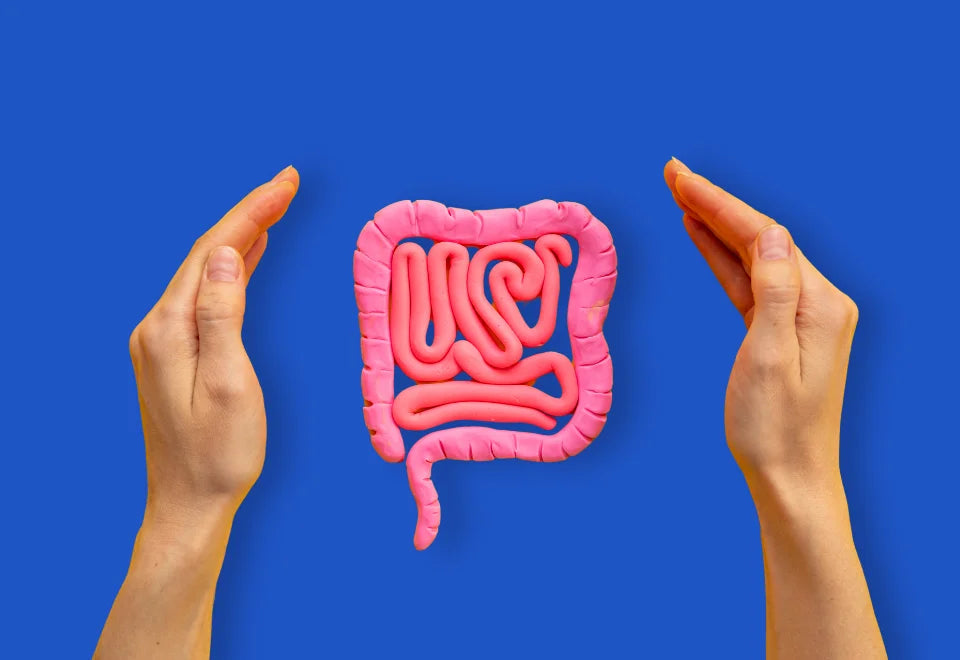The Gut Health Buzz
Probiotics have become one of the most marketed supplements in the wellness industry. From yoghurt drinks to capsules boasting billions of CFUs (colony-forming units), they are promoted as a daily essential for a “happy gut”. Globally, the probiotic market is projected to surpass USD 90 billion by 2030, driven largely by consumer perception rather than individual medical need (Grand View Research, 2023).
While probiotics can be beneficial in certain cases, they are not a universal gut-health fix. In fact, there are cases where they might disrupt the natural microbial balance, delay recovery after illness, or even pose risks to certain individuals.
This article will take you beyond marketing to the actual science and explain when probiotics may be helpful, when they could be harmful, and what alternatives to consider.
The Science Behind Probiotics
Probiotics are live microorganisms which, when administered in adequate amounts, provide health benefits to the host. Commonly used strains include species from Lactobacillus, Bifidobacterium, and the yeast Saccharomyces boulardii.
What are the Proven Benefits of Probiotics?
Reduces antibiotic-associated diarrhoea
Meta-analyses show certain strains, such as Lactobacillus rhamnosus GG, can reduce the incidence of diarrhoea during or after antibiotic therapy (Hempel et al., 2012).
Supports acute infectious diarrhoea recovery
Saccharomyces boulardii has demonstrated efficacy in shortening diarrhoea duration in children (Szajewska & Kołodziej, 2015).
Manages specific gut disorders
Some evidence supports probiotics in ulcerative colitis or pouchitis management, but strain specificity is critical.
However, it is important to note that these findings don’t mean everyone should take probiotics daily. The gut microbiome is highly individualised, and introducing new microbial strains can have unpredictable effects.
The Individuality of the Gut Microbiome
Your gut microbiome (the trillions of bacteria, fungi, archaea and viruses living in your digestive tract) is as unique as your fingerprint. It’s influenced by genetics, birth delivery mode, diet, environment, medication use, and lifestyle and is ever evolving.
That said, a probiotic strain that helps one person might do nothing (or cause problems) for another.
When you take a generic probiotic, you’re introducing a preselected set of microbes that may not integrate well with your existing microbiota. A study found that in some people, probiotics failed to colonise the gut altogether, while in others they displaced native bacteria without providing measurable benefits (Zmora et al., 2018).
“The human microbiome is incredibly individualised. There is no one-size-fits-all probiotic.” — Dr. Rob Knight, Professor of Paediatrics, UC San Diego
Potential Risks of Probiotics
While probiotics are generally considered safe for healthy individuals, they aren’t risk-free. Here are a few side-effects or risks of taking probiotics:
Post-Antibiotic Delayed Recovery
Contrary to popular belief, probiotics after antibiotics may delay the restoration of your natural microbiome. A study found that probiotic users took longer to return to their pre-antibiotic gut composition compared to those who did nothing and those who received an autologous fecal microbiota transplant recovered the fastest (Suez et al. 2018).
Small Intestinal Bacterial Overgrowth (SIBO)
In people prone to SIBO, adding probiotics can worsen symptoms like bloating, gas, and abdominal pain. A study reported that certain probiotic regimens increased the risk of D-lactic acidosis and brain fog in SIBO patients (Rao et al. 2018).
Infections in Vulnerable Groups
Although rare, probiotics can cause bloodstream infections (bacteraemia or fungemia) in immunocompromised individuals, premature infants, or those with central venous catheters (Doron & Snydman, 2015).
Gastrointestinal Discomfort
Some individuals experience transient bloating, cramping, or loose stools when starting probiotics, possibly due to microbial competition in the gut.
These side effects are often underreported because probiotics are marketed as harmless.
The Strain-Specific Reality
Not all probiotics are equal. The benefits depend on strain, dose, and delivery method.
For example:
- Lactobacillus rhamnosus GG → best evidence for antibiotic-associated diarrhoea prevention.
- Bifidobacterium infantis 35624 → may help with IBS symptoms.
- Saccharomyces boulardii → effective in certain infectious diarrhoeas.
However, many commercial supplements mix multiple strains with no evidence for that exact combination. This “more is better” approach can reduce efficacy and increase the risk of unwanted microbial shifts.
Better Strategies for Gut Health
Instead of automatically reaching for a probiotic, it is better to focus on foundational strategies supported by strong evidence.
Prebiotics
Prebiotics are non-digestible fibres that nourish beneficial bacteria already in your gut. They include inulin, fructo-oligosaccharides (FOS), and galacto-oligosaccharides (GOS). Randomised trials have shown prebiotics increase populations of Bifidobacterium and improve gut barrier function (Scott et al., 2020).
Sources: Foods like garlic, onions, bananas, and asparagus.
Fermented Foods
Fermented foods provide a diverse range of live microbes within a food matrix, which may improve survivability through digestion (Marco et al., 2017).
Sources: Kefir, kimchi, sauerkraut, miso, and tempeh.
Diverse, Fibre-Rich Diet
The American Gut Project found that people who eat 30+ different plant foods per week have more diverse gut microbiota (McDonald et al., 2018).
Lifestyle Factors
Studies show stress reduction, regular exercise, and adequate sleep positively influence microbiome composition and immune function (Allen et al., 2018).
The Importance of Personalised Gut Health
Decode Age advocates for a data-first approach. Our Gut microbiome testing allows us to:
- Identify dominant and deficient bacterial groups.
- Assess microbial diversity.
- Detect imbalances or pathogenic overgrowth.
Armed with this information, interventions can be precision-targeted, including whether a specific probiotic strain is warranted, rather than relying on generic blends.

Conclusion
Probiotics are not inherently bad, but they are not a universal wellness supplement. Clinical benefits depend on the right strain, dose, and timing, matched to an individual’s microbiome needs. In many cases, improving diet, lifestyle, and prebiotic intake may offer more lasting benefits without the risks associated with random supplementation.
The future of gut health lies in personalised, evidence-based care, not one-size-fits-all marketing.
“The best approach to gut health is not about adding random bacteria. It is about creating the right environment for your microbiome to thrive.” - Decode Age
FAQs
Are probiotics bad for everyone?
No. Probiotics can be beneficial in certain conditions, but they are not necessary or helpful for everyone. Their effects depend on individual microbiome composition and health status.
Can probiotics cause side effects?
Yes, common side effects of probiotics include bloating, gas, and in rare cases, infections, especially in those with compromised immunity.
























Leave a comment
All comments are moderated before being published.
This site is protected by hCaptcha and the hCaptcha Privacy Policy and Terms of Service apply.